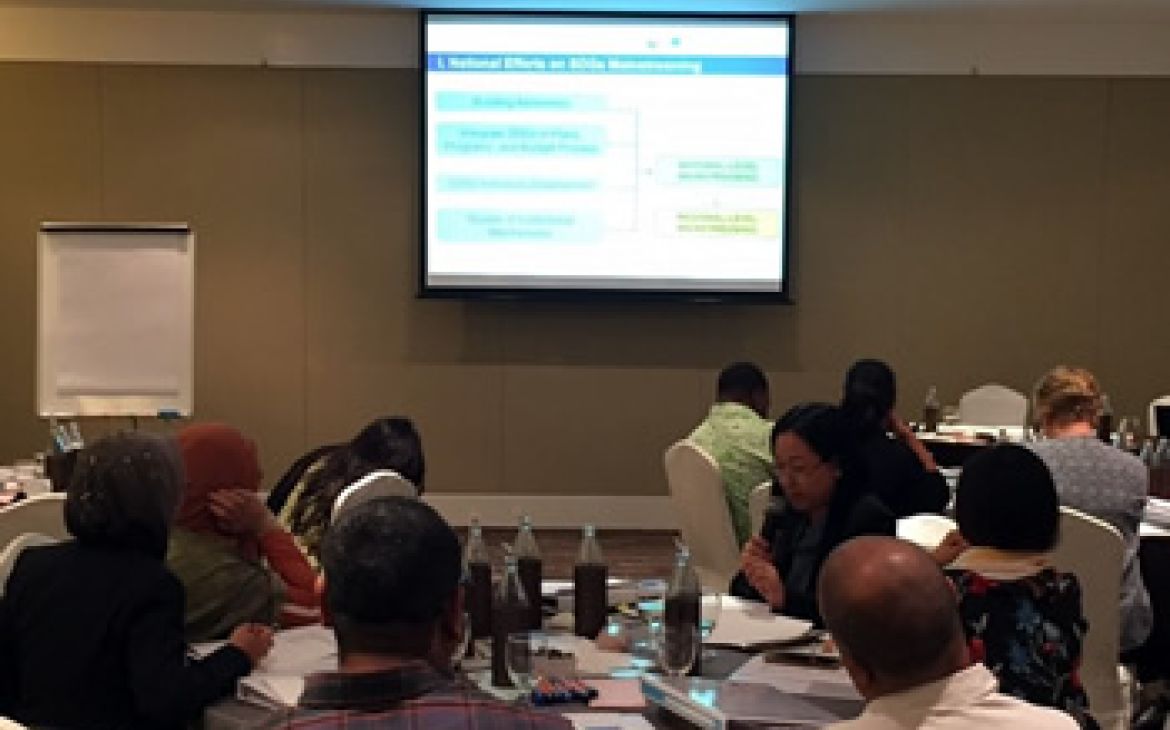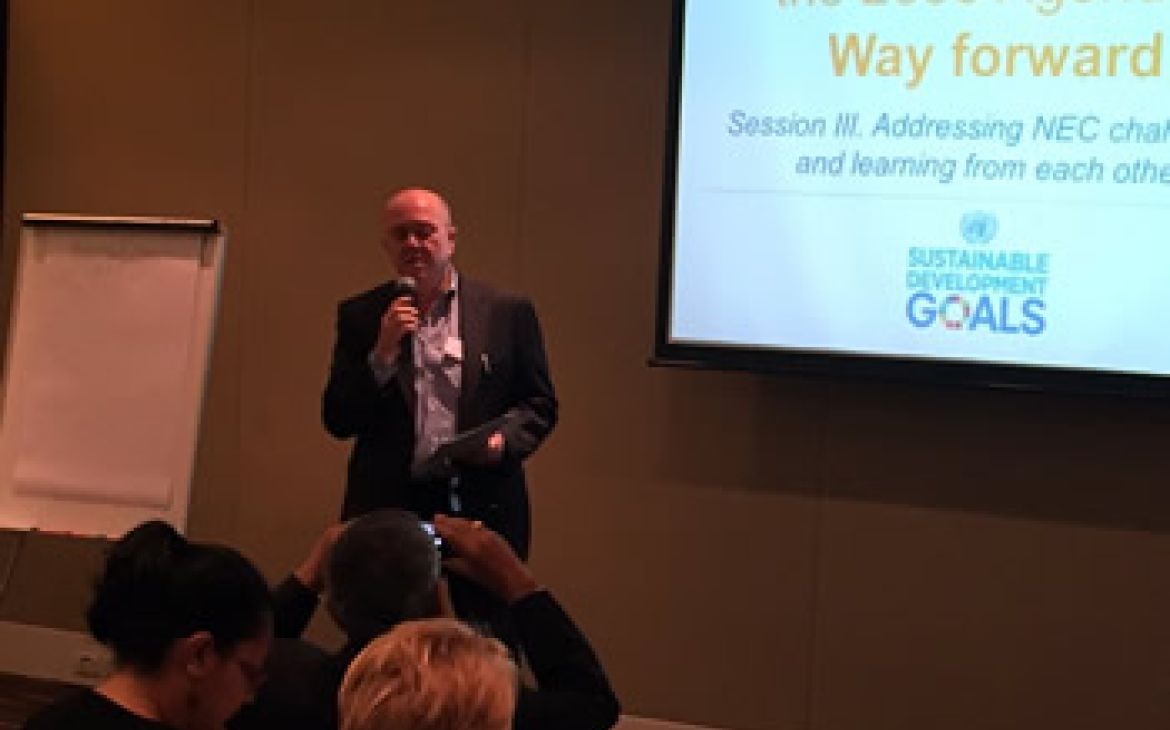26 – 27 October 2016, Bangkok, Thailand – A first Regional Training Workshop on “Developing National Evaluation Capacities to Support the Implementation of the 2030 Agenda” was jointly held by UNITAR and UNDP Bangkok Regional Hub on 26-27 October 2016 in Bangkok, back-to-back with the major Regional SDG Knowledge Exchange Forum. The workshop was organized in collaboration with other UN agencies and partners, including professional evaluation networks, and was attended by 30 participants, mainly government officials, UN staff and representatives of CSOs and VOPEs, primarily from six countries: Indonesia, Malaysia, Mongolia, Nepal, Pakistan and Philippines.
As review is a core part of the 2030 Agenda, evaluation, together with monitoring, will be crucial to assessing progress against the SDGs and informing related policy-making. One of the main lessons learned from the MDGs era was that measurement of progress was not sufficient. Policy-makers also needed to be aware and understand what worked, what didn’t and why. The role of evaluation in providing robust evidence and helping ensure the implementation of the SDGs was fully acknowledged in the 2030 Agenda stating that national review processes will be “informed by country-led evaluations and data…”.
National leadership in shaping evaluation policies and approaches and adjusting national Monitoring & Evaluation (M&E) systems to the needs of the SDGs will be essential. At the same time, many countries face significant evaluation capacity gaps on demand and supply sides that will need to be addressed to ensure evaluation can fulfil its function and effectively support the implementation of the SDGs. It is in this context that UNDP, UNITAR and several other partners decided to take advantage of the momentum generated by the mainstreaming of the SDGs into national strategies and the design of national indicator frameworks and convene this first regional training workshop dedicated to the development of national evaluation capacities for the SDGs.
The workshop unfolded over two days, with training sessions on Day 1 aiming to raise participants’ awareness of the role evaluation can and should play in supporting the implementation of the 2030 Agenda. Country presentations delivered by Dr. Teertha Dhakal, National Planning Commission Secretariat, Nepal, and Ms. Violeta Corpus, National Economic and Development Authority, Philippines, provided valuable examples of how some Government are starting to address the SDGs in their national evaluation policies and M&E systems early on. Participants have also been introduced to a range of new evaluation approaches of particular relevance to the 2030 Agenda, i.e., equity-focussed evaluations and system thinking and complexity science, during the afternoon sessions.
The first, training part of the workshop was followed, on Day 2, by focussed discussions and work in groups aimed at assessing current national evaluation policies and M&E institutional arrangements and mapping national institutional and capacity challenges. Resource persons from UNDP Independent Evaluation Office, UNICEF, EvalPartners and EvalSDGs shared many valuable insights on assessment tools, regional capacity development initiatives and experiences of peer-to-peer learning networks in the area of national evaluation policies.
Towards the end of the workshop, participants also had a chance to discuss opportunities for peer-to-peer learning and other possible follow-up to the workshop. Drawing on the results of this first pilot, UNITAR and UNDP plan to update training materials and methodologies for subsequent use in rolling out similar training events at regional and national levels in other parts of the world.
Related link
UNITAR's activities in developing capacity for the 2030 Agenda
Photo 1: Participants of the workshop
Photo 2: Mr. Arild Hauge (UNDP)



